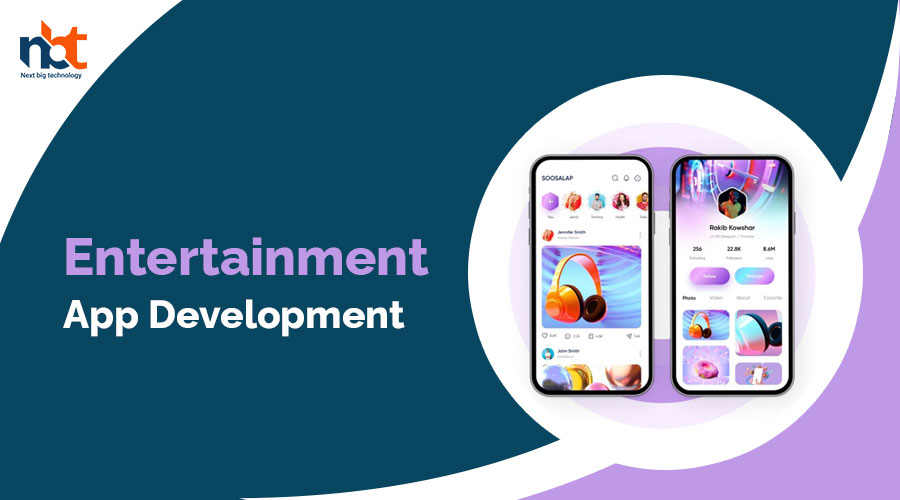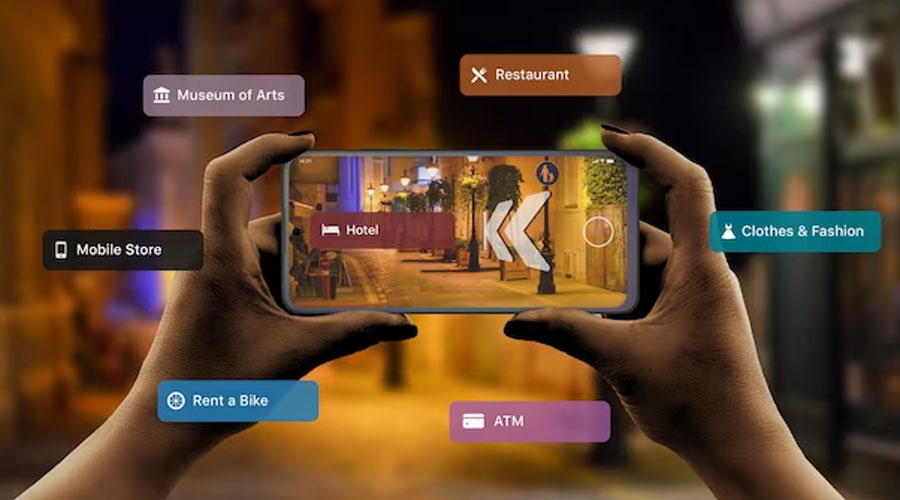Table of Contents
Introduction to Entertainment App Development
In the ever-evolving landscape of the digital age, where technological advancements shape our daily experiences, entertainment app development stands out as a dynamic force driving innovation and shaping the way we consume content. From the early days of simple mobile games to the sophisticated, immersive experiences of today, entertainment apps have become an integral part of our lives, providing a gateway to a world of infinite enjoyment.
The Pioneering Days:
The inception of entertainment app development can be traced back to the advent of mobile phones and the subsequent rise of smartphones. As these pocket-sized devices became more powerful, developers began exploring ways to leverage their capabilities for entertainment purposes. The early stages witnessed the emergence of simple games and utility apps, laying the foundation for the diverse and sophisticated landscape we see today.
Diversification of Content:
The journey of entertainment app development has been marked by a remarkable diversification of content. What began with basic games evolved into a vast ecosystem encompassing streaming platforms, social networking apps, interactive storytelling, augmented reality experiences, and much more. This diversification has not only broadened the scope of entertainment but has also led to the creation of niche markets catering to specific interests and preferences.
Streaming Platforms:
One of the most significant developments in entertainment app development has been the rise of streaming platforms. These platforms have transformed the way we access and consume content, offering on-demand access to a vast library of movies, TV shows, and music. The convenience of streaming has reshaped traditional media consumption patterns, allowing users to enjoy their favorite content anytime, anywhere.
Gaming Evolution:
The gaming industry, a cornerstone of entertainment, has witnessed a revolution through app development. Mobile gaming has transcended the limitations of early simplistic games to become a multibillion-dollar industry, rivaling traditional gaming platforms. The integration of advanced graphics, augmented reality, and virtual reality technologies has elevated mobile gaming to new heights, attracting a diverse and dedicated user base.
Social Integration:
The social element has become a cornerstone of many successful entertainment apps. The integration of social media features allows users to share their favorite content, connect with friends, and participate in a virtual community. Social interaction enhances the overall user experience, creating a sense of connection and shared enjoyment.
Trends Shaping the Future:
Looking ahead, several trends are poised to shape the future of entertainment app development:
- Blockchain and NFTs in Content Distribution: The advent of blockchain technology and non-fungible tokens (NFTs) is revolutionizing content distribution and ownership. Entertainment apps exploring blockchain can provide secure, transparent, and decentralized platforms for content creators and consumers.
- Voice-Activated Entertainment: The increasing prevalence of voice-activated devices is paving the way for voice-controlled entertainment apps. Users can seamlessly navigate content, play games, and interact with their favorite apps using voice commands, adding a new dimension to user engagement.
- Cross-Platform Integration: The demand for a seamless user experience across multiple devices is driving the trend of cross-platform integration. Entertainment apps that can seamlessly transition from smartphones to smart TVs, tablets, and other devices offer users a consistent and versatile experience.
Challenges in Entertainment App Development:
While the world of entertainment app development is filled with opportunities, it is not without its challenges:
- Content Licensing and Copyright Issues: Securing the rights to use and distribute content can be a complex legal process. Developers must navigate the intricate landscape of licensing agreements and copyright laws to ensure compliance and avoid legal complications.
- Monetization Strategies: Finding effective monetization strategies is a perpetual challenge. Striking the right balance between providing free content to attract users and offering premium features or ad-supported models requires a deep understanding of user behavior and market dynamics.
Opportunities for Entrepreneurs:
- Niche Content Platforms: Entrepreneurs can capitalize on the demand for specialized content by creating niche platforms catering to specific interests or demographics. Whether it’s a platform for niche music genres, obscure hobbies, or unique storytelling formats, there are ample opportunities for innovation.
- Ephemeral Content Platforms: Short-form content, such as videos and micro-games, is gaining traction. Entrepreneurs can explore opportunities in creating apps that offer quick and engaging experiences, catering to users with limited time and a preference for bite-sized entertainment.
- Collaborations and Partnerships: Strategic collaborations with content creators, influencers, and established brands can open up new avenues for entertainment app developers. Partnerships can bring exclusive content, attract a wider audience, and enhance the overall user experience.
Key Features and Functionalities in Entertainment Apps
Entertainment apps have become an integral part of our daily lives, offering a diverse range of content and experiences that cater to individual tastes and preferences. As the demand for immersive and engaging entertainment continues to rise, developers are incorporating advanced features and functionalities to stay ahead in this competitive landscape. In this comprehensive exploration, we delve into the key features and functionalities that define the modern entertainment app experience.
1. Intuitive User Interface (UI) and User Experience (UX):
The foundation of any successful entertainment app lies in its user interface and overall user experience. A clean, intuitive design with easy navigation enhances user satisfaction. Intuitive menus, personalized recommendations, and visually appealing layouts contribute to a seamless and enjoyable user journey.
2. Personalization and Recommendation Algorithms:
One of the standout features in contemporary entertainment apps is the integration of sophisticated personalization and recommendation algorithms. These algorithms analyze user behavior, preferences, and viewing history to offer tailored content suggestions. By understanding individual tastes, entertainment apps keep users engaged and increase the likelihood of discovering new favorites.
3. Seamless Content Streaming:
For video and music streaming apps, the ability to provide seamless, high-quality streaming is paramount. Incorporating adaptive streaming technologies ensures that users experience minimal buffering, regardless of their internet connection speed. This feature contributes significantly to user satisfaction and retention.
4. Multi-Platform Accessibility:
To reach a wider audience, entertainment apps must be accessible across various platforms and devices. Whether on smartphones, tablets, smart TVs, or desktop computers, users expect a consistent experience. Cross-platform compatibility ensures that users can seamlessly transition between devices without losing their progress or preferences.
5. Offline Mode and Downloadable Content:
Recognizing the importance of flexibility, many entertainment apps now offer offline mode and the ability to download content. This feature allows users to enjoy their favorite movies, TV shows, or music even when they are not connected to the internet, catering to users in areas with limited connectivity.
6. Social Media Integration:
Social media integration has become a staple in entertainment apps, fostering a sense of community and enabling users to share their experiences. The ability to connect with friends, share favorite content, and see what others are watching or listening to enhances the overall user experience and contributes to app virality.
7. Augmented and Virtual Reality Integration:
The integration of augmented reality (AR) and virtual reality (VR) technologies is transforming entertainment apps into immersive experiences. VR can transport users to virtual worlds, providing a new dimension to gaming and storytelling. AR, on the other hand, enhances the real world by overlaying digital elements, creating interactive and engaging experiences.
8. Live Streaming and Interactive Content:
Live streaming has gained immense popularity in entertainment apps, especially in the realms of gaming, events, and social interactions. The real-time nature of live content creates a sense of urgency and excitement. Additionally, interactive features such as live chats, polls, and Q&A sessions engage users actively, fostering a community around the content.
9. Gamification Elements:
Gamification elements, such as achievements, badges, and leaderboards, are being integrated into various entertainment apps to enhance user engagement. By turning the consumption of content into a game-like experience, developers incentivize users to explore more features, share content, and spend more time within the app.
10. In-App Purchases and Monetization Models:
For developers, incorporating effective monetization strategies is crucial for the sustainability of entertainment apps. In-app purchases, subscription models, and freemium structures provide users with options while generating revenue for the developers. Striking the right balance between providing value and encouraging purchases is key to a successful monetization strategy.
Cross-Platform Development for Entertainment Apps
In the ever-evolving landscape of entertainment app development, the concept of cross-platform development has gained significant traction. As users engage with an array of devices and operating systems, developers are increasingly recognizing the need to create apps that seamlessly transcend these boundaries. This article delves into the realm of cross-platform development for entertainment apps, exploring the benefits, challenges, and best practices that shape this innovative approach.
Understanding Cross-Platform Development:
Cross-platform development involves the creation of applications that can run on multiple operating systems with a single codebase. Unlike traditional approaches that require separate development for each platform (iOS, Android, etc.), cross-platform development aims to streamline the process, enabling developers to write code once and deploy it across various platforms.
Advantages of Cross-Platform Development for Entertainment Apps:
- Cost-Efficiency: One of the primary advantages of cross-platform development is cost efficiency. Writing and maintaining a single codebase for multiple platforms reduces development costs compared to the resources required for platform-specific development.
- Time Savings: Cross-platform development accelerates the time-to-market for entertainment apps. With a shared codebase, developers can simultaneously deploy the app on different platforms, avoiding the time-consuming process of redeveloping the entire application for each platform.
- Consistent User Experience: Cross-platform development ensures a consistent user experience across various devices and operating systems. Users can enjoy the same features and design elements, fostering familiarity and usability irrespective of the device they use.
Frameworks and Tools for Cross-Platform Development:
- React Native: Developed by Facebook, React Native has gained immense popularity for cross-platform development. It allows developers to use JavaScript and React to build native-like mobile applications, sharing a substantial amount of code between iOS and Android.
- Flutter: Google’s Flutter is an open-source UI software development toolkit that facilitates the creation of natively compiled applications for mobile, web, and desktop from a single codebase. With its rich set of pre-designed widgets, Flutter empowers developers to craft visually appealing and high-performance apps.
- Xamarin: Acquired by Microsoft, Xamarin enables the development of cross-platform apps using C# and the .NET framework. Developers can share a significant portion of code across iOS, Android, and Windows platforms, while still providing a native-like user experience.
- PhoneGap/Cordova: Apache Cordova, often used in conjunction with Adobe PhoneGap, is a mobile application development framework that utilizes web technologies (HTML, CSS, JavaScript). It enables the creation of cross-platform apps by packaging web code into a native container.
Challenges and Considerations in Cross-Platform Development:
- Performance Concerns: Achieving optimal performance on different platforms can be challenging. Cross-platform frameworks may not match the native performance of platform-specific development in some cases, particularly for resource-intensive applications.
- Platform-Specific Features: Each platform has its unique features and capabilities. Ensuring that the app takes full advantage of these features while maintaining a shared codebase requires careful consideration and, at times, platform-specific code.
- Learning Curve: Developers may need to learn and adapt to the specific framework or tool chosen for cross-platform development. While some frameworks aim for ease of use, there is still a learning curve associated with mastering the intricacies of each platform.
Best Practices for Cross-Platform Development in Entertainment Apps:
- Thorough Planning and Research: Before diving into cross-platform development, conduct thorough research on the target audience, devices, and platforms. Define the app’s requirements and features to ensure a clear roadmap for development.
- Choose the Right Framework: Select a cross-platform framework that aligns with the project requirements and developer expertise. Consider factors such as performance, community support, and the ability to leverage platform-specific features.
- Optimize for Performance: Pay attention to performance optimization. Utilize platform-specific optimizations when necessary and conduct thorough testing to identify and address any performance bottlenecks.
- Responsive Design: Implement a responsive design that adapts seamlessly to different screen sizes and resolutions. This ensures a consistent and visually appealing experience across various devices.
- Use Platform-Specific Code When Needed: While the goal is to share code across platforms, be prepared to use platform-specific code for certain features or optimizations. Many cross-platform frameworks allow for the integration of native code when necessary.
The Role of Artificial Intelligence in Enhancing Entertainment Apps
In the ever-evolving landscape of entertainment app development, one technological powerhouse is shaping the industry’s future—Artificial Intelligence (AI). This transformative force has become a cornerstone in the quest to enhance user experiences, personalize content delivery, and revolutionize how we interact with entertainment applications. In this comprehensive exploration, we delve into the myriad ways AI is influencing and augmenting entertainment apps, propelling them into a new era of innovation and engagement.
Understanding the Marriage of AI and Entertainment Apps:
AI, encompassing machine learning, natural language processing, and computer vision, has transcended its initial roles in other domains and found a natural fit in entertainment app development. Its ability to analyze vast datasets, learn patterns, and make predictions has unlocked a plethora of possibilities for app developers aiming to captivate audiences in unprecedented ways.
1. Personalization Redefined:
One of the most noticeable impacts of AI in entertainment apps is the revolutionization of content personalization. Gone are the days of generic recommendations; AI algorithms now scrutinize user behavior, preferences, and historical data to offer tailor-made content suggestions. Whether it’s movies, music, or games, users experience a level of personalization that enhances their overall engagement and satisfaction.
2. Dynamic Content Creation:
AI algorithms are not confined to recommending existing content but are increasingly involved in the creation process. In the music industry, for instance, AI-driven tools can compose original pieces, mimicking specific genres or artists’ styles. Similarly, in gaming, procedural content generation powered by AI can create diverse and dynamic gaming environments, ensuring no two experiences are identical.
3. Augmented Reality (AR) and Virtual Reality (VR) Enhancements:
AI plays a pivotal role in elevating the immersive experiences offered by AR and VR in entertainment apps. Through real-time data analysis and interpretation, AI enhances the realism and responsiveness of virtual worlds, creating a more engaging and interactive user experience. Whether exploring virtual landscapes or engaging in AR-enhanced live events, users are now part of a seamlessly integrated digital realm.
Challenges and Ethical Considerations:
Despite the numerous benefits AI brings to entertainment apps, its integration is not without challenges. Issues such as data privacy, algorithmic bias, and the ethical use of AI in content creation are paramount. Striking a balance between providing personalized experiences and respecting user privacy is a delicate task that developers must navigate to maintain user trust.
1. Algorithmic Bias and Fair Representation:
AI algorithms, if not carefully designed and monitored, can perpetuate and amplify societal biases present in training data. This poses a challenge in ensuring fair representation across diverse user demographics. Developers must actively work to identify and mitigate bias to create inclusive and equitable entertainment experiences.
2. Privacy Concerns:
The collection and utilization of user data for AI-driven personalization raise concerns about privacy. Striking a balance between delivering personalized content and safeguarding user information is crucial. Developers must implement robust privacy measures, transparent data usage policies, and user-friendly consent mechanisms to address these concerns.
3. Ethical Content Creation:
As AI becomes more involved in content creation, ethical considerations arise. Ensuring that AI-generated content adheres to ethical standards, avoids misinformation, and respects cultural sensitivities is imperative. Developers must establish guidelines and oversight mechanisms to maintain the integrity of the content produced by AI systems.
The Future Landscape:
Looking ahead, the integration of AI in entertainment apps is poised to reach new heights. As technology continues to advance, developers will likely explore novel applications of AI, further refining user experiences and pushing the boundaries of what is possible.
1. Hyper-Personalization through Emotional AI:
The next frontier in personalization is Emotional AI, where algorithms analyze user emotions through facial expressions, voice tone, and other cues. This technology could enable entertainment apps to respond dynamically to users’ emotional states, tailoring content recommendations and interactions to match their mood and preferences.
2. Enhanced Immersion in Virtual Worlds:
Advancements in AI, combined with AR and VR technologies, may lead to more sophisticated and realistic virtual worlds. AI algorithms could dynamically adjust virtual environments based on user reactions, creating truly immersive and adaptive experiences that respond to user input and emotions in real time.
3. AI-Generated Multimodal Content:
The future may witness AI-generated content that transcends traditional boundaries. Imagine entertainment apps that seamlessly blend video, music, and interactive elements, all dynamically generated by AI algorithms. This convergence of multimedia elements could result in entirely new forms of digital entertainment.
Future Outlook: Anticipated Developments in Entertainment App Technology
The evolution of entertainment app technology is an ongoing saga, continually shaped by advancements in artificial intelligence, augmented reality, virtual reality, and other cutting-edge technologies. As we peer into the distant future, around the year 3000, we can anticipate a paradigm shift in the way we consume and interact with entertainment content through apps. This exploration delves into the speculative landscape of entertainment app technology, envisioning the potential developments that might unfold over the next millennium.
1. Artificial Intelligence and Personalization:
In the year 3000, artificial intelligence (AI) is expected to play an even more central role in entertainment app development. Imagine apps that not only understand user preferences but also anticipate them, creating hyper-personalized content experiences. AI algorithms will evolve to such an extent that they can predict the user’s emotional state and dynamically adjust content to match their mood, ensuring a truly immersive and tailored entertainment experience.
2. Total Immersion with Neurotechnology:
Neurotechnology, the interface between technology and the human brain, holds the promise of transforming entertainment apps into mind-bending experiences. Users might no longer need external devices like VR headsets; instead, neural interfaces could directly stimulate the brain to create vivid sensory experiences. This level of immersion could redefine storytelling, allowing users to not just watch or listen but to genuinely feel and experience the narratives on a neural level.
3. Holodeck-Like Experiences:
Building on the concept of total immersion, entertainment apps in the year 3000 might offer Holodeck-like experiences reminiscent of science fiction. Users could step into virtual environments indistinguishable from reality, interact with lifelike characters, and engage in activities that defy the constraints of the physical world. This level of experiential entertainment would require advancements in holographic display technology, real-time environmental mapping, and haptic feedback systems.
4. Quantum Computing for Infinite Possibilities:
Quantum computing is poised to revolutionize the capabilities of computational systems. In the entertainment app landscape of the future, quantum computing might enable real-time rendering of incredibly complex and realistic virtual worlds. Users could explore vast universes with unparalleled detail and interact with characters and objects that respond to their every action in ways previously inconceivable.
5. Integration of Blockchain for Content Ownership:
As concerns about digital content ownership persist, blockchain technology could become a cornerstone of entertainment apps in the year 3000. Blockchain’s decentralized and transparent nature could be harnessed to ensure the authenticity and ownership of digital assets. Users might have unprecedented control over their digital content, from movies and music to virtual assets within games, fostering a sense of ownership and security.
6. Hyper-Social Virtual Realities:
Social interaction within virtual environments is likely to transcend current capabilities. Entertainment apps may create hyper-social virtual realities where users can not only interact with each other but also share experiences in real-time. Virtual concerts, movie nights, and gaming sessions could become social gatherings on a global scale, facilitated by advanced networking technologies.
Thanks for reading our post “Entertainment App Development”. Please connect with us to learn more about On-Demand App Clone.














